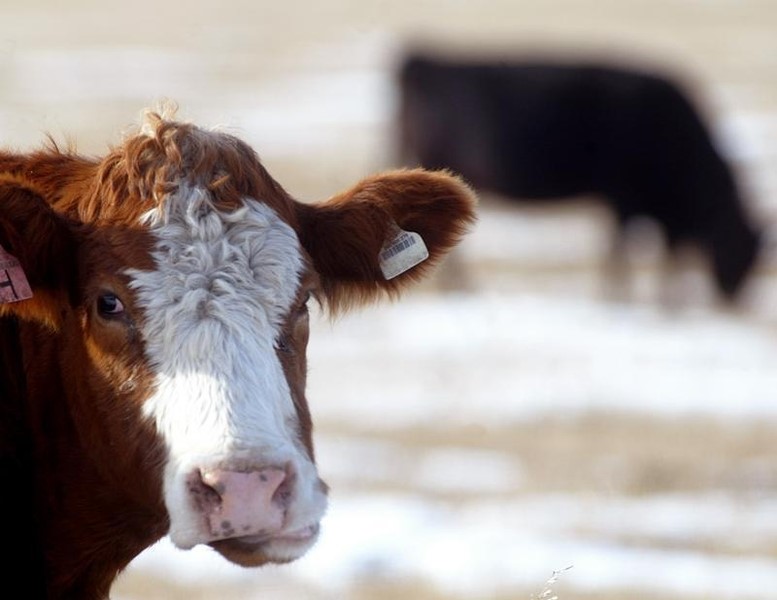By David Ljunggren and Scott Haggett
OTTAWA/CALGARY (Reuters) - Canada confirmed its first case of mad cow disease since 2011 on Friday, but said the discovery should not hit a beef export sector worth C$2 billion ($1.6 billion) a year.
The news, however, helped boost U.S. cattle prices.
The Canadian Food Inspection Agency (CFIA) said no part of the animal, a beef cow from Alberta, had reached the human food or animal feed systems.
Mad cow disease, formally known as bovine spongiform encephalopathy (BSE), is a progressive, fatal neurological disease. It is thought that the disease can be transmitted to people from food made from cows sick with BSE.
"The CFIA is seeking to confirm the age of the animal, its history and how it became infected. The investigation will focus in on the feed supplied to this animal during the first year of its life," the agency said.
Canadian exports were badly hit in 2003 after the first case of BSE in Canada was detected. Canada subsequently tightened its controls, and many nations have since resumed the beef trade with Canada, despite the discovery of more cases since then.
Asked whether he was concerned about exports being harmed, Agriculture Minister Gerry Ritz told reporters in Calgary: "Not at this time, no."
He added, however, that markets in South Korea and Japan were generally very concerned about the potential risk from BSE.
A fresh discovery of BSE may not close borders to beef, given the tougher measures, but it could delay Canada's efforts to upgrade its international risk status from the World Organization for Animal Health (OIE).
An OIE spokeswoman said the discovery and reporting of the case showed the surveillance system was working. She said Canada had a "controlled risk" status, which would not be endangered by the discovery.
A CFIA official told reporters that Canada would not be allowed to upgrade to the "negligible risk" status unless it could prove that any diseased cow found was at least 11 years old. He said the agency was still investigating the cow's age.
Ritz said Canada's current OIE risk status meant it could report up to 12 outbreaks in a calendar year.
On the Chicago Mercantile Exchange, the news initially helped drive up live cattle contracts for delivery beginning this spring by as much as 2 percent.
The market rallied in part because of the prospect of less beef coming across the border, said Joe Ocrant, president of Oak Investment Group in Chicago.
BSE is believed to spread when cattle eat protein rendered from the brains and spines of infected cattle or sheep. Canada banned that practice in 1997.
The CFIA tightened feed rules in 2007 and said this should help eliminate the disease nationally within a decade, although the agency said it still expected to discover an occasional new case.
Dave Solverson, president of the Canadian Cattlemen's Association, said that in previous outbreaks there had rarely been more than one infected animal on an individual farm.
"It's very unlikely there will be more cases found," he told the Canadian Broadcasting Corp.
($1=$1.25 Canadian)
